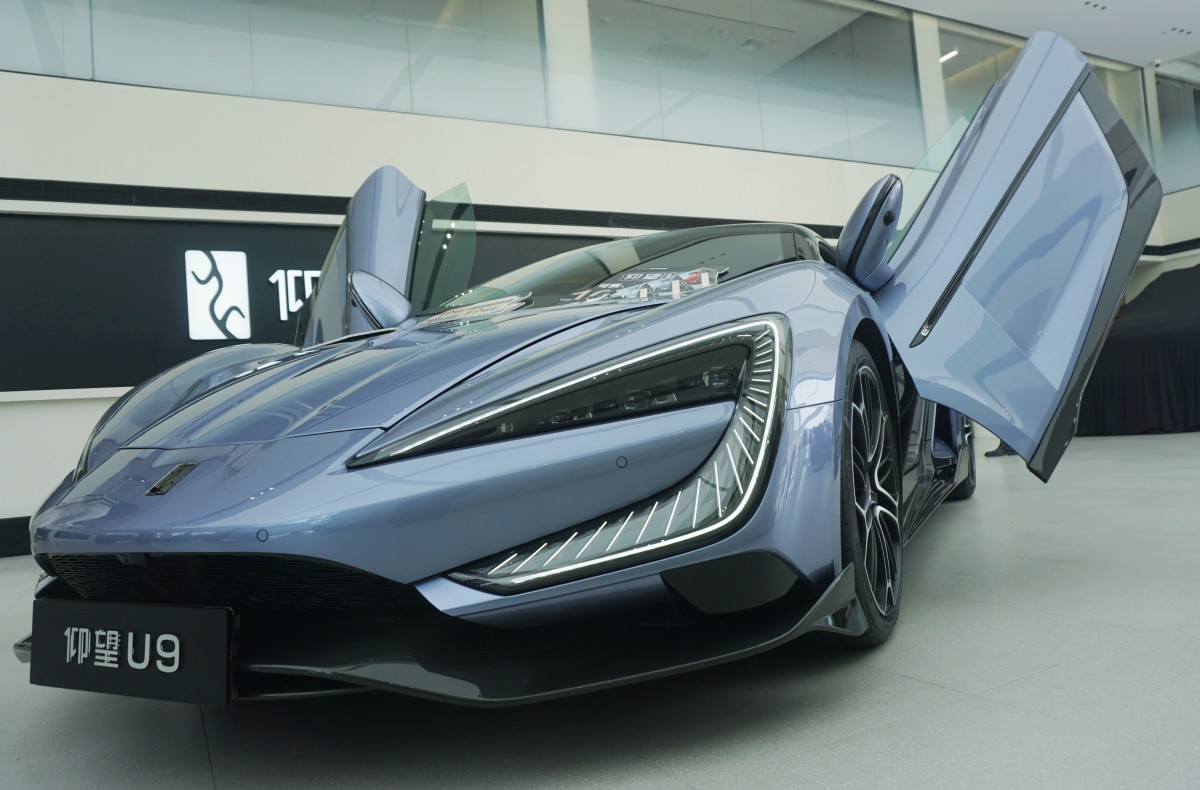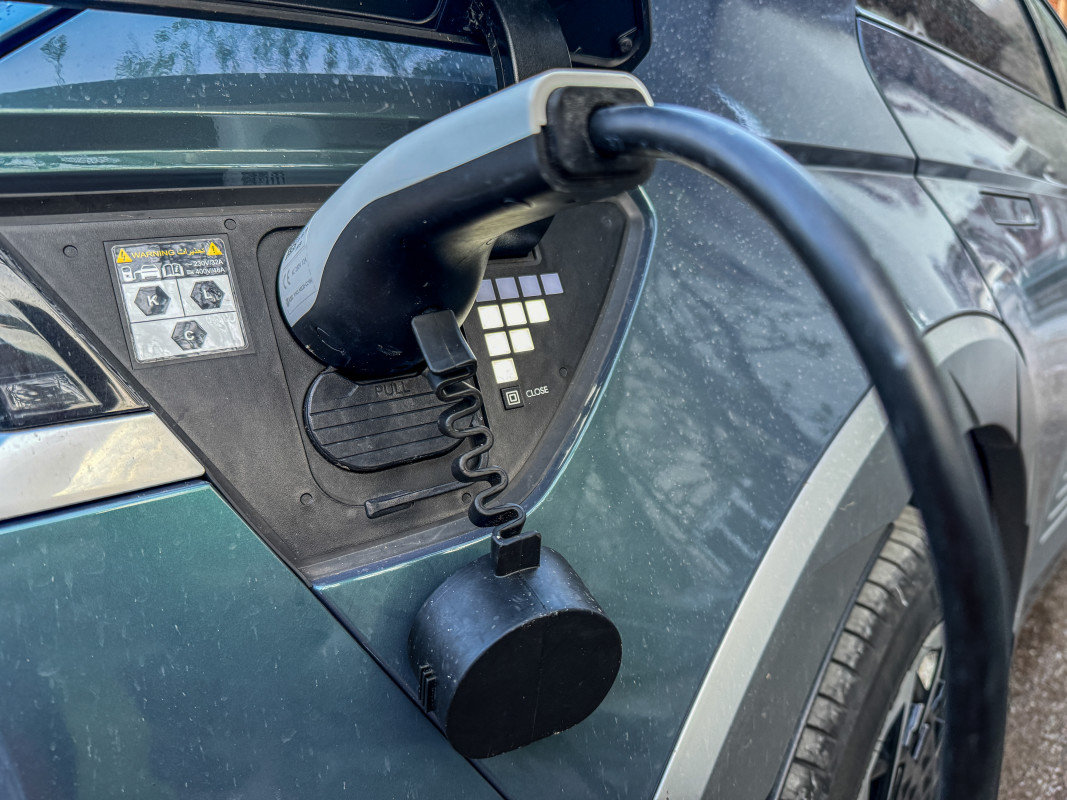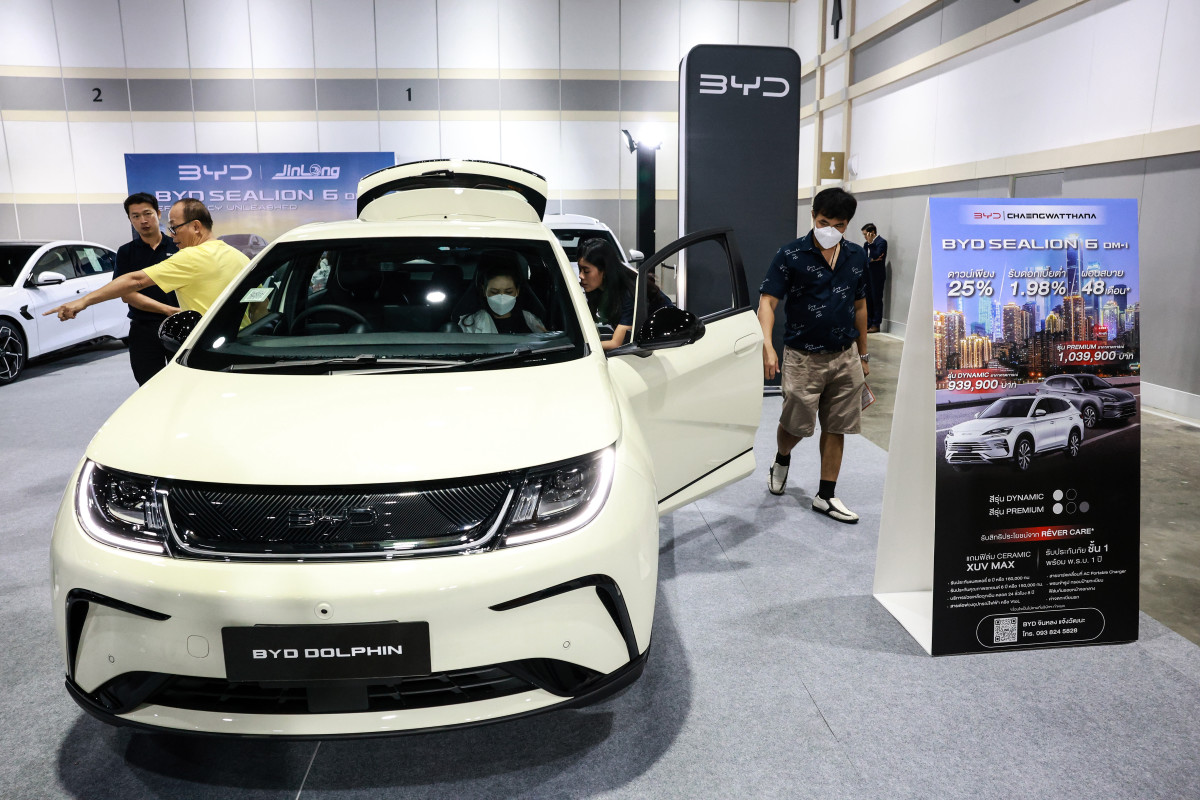
Though Tesla (TSLA) claims the domestic crown as the automaker with the largest EV market share in the United States, the international crown belongs to one of its Chinese rivals, BYD (BYDDY) .
BYD's vehicles are not officially sold in the States. Still, the high price of new cars has left many younger Americans and prospective car buyers on social media outlets like TikTok and Instagram with impressions of desire after learning that the brand's EVs, like the pint-sized Dolphin, cost just $13,000 in the People's Republic.
😲 Don’t Miss this amazing Black Friday Move! Get 60% off TheStreet Pro. Act now before it’s gone. 🚨
According to the International Electric Vehicle Consumer-Sentiment Survey conducted by AlixPartners, 76% of prospective EV buyers aged 18-25 and 73% of buyers aged 25 to 35 are aware of Chinese brands like BYD, a stat that surprised AlixPartners' automotive and industrial global co-leader Mark Wakefield.
"It's pretty clear that even with very little market share, the awareness is really growing," Wakefield said.
However, while these Chinese brands enjoy the attention of their pricing strategy, there is more to what is on the surface. Like concerns with cheap clothing, Pronto Moda, and fast fashion, someone else within the supply chain is paying a higher price.

Related: Toyota exec slams "impossible" EV mandate amidst political chaos
The Human Cost to EVs
A recent report by Amnesty International, Recharge for Rights, alleges that automakers BYD, Mitsubishi, and Hyundai have the worst human rights due diligence policies of the 13 major EV manufacturers on which it focused.
Electric vehicles don’t produce tailpipe emissions; however, the lithium-ion batteries that power them need valuable minerals such as lithium, nickel, and cobalt to make up the cells that store electricity.
Research has shown that mining such minerals causes irreparable environmental damage to communities near these mines. According to a February 2024 report by the MIT Climate Portal, 60% of the world's lithium is located in brine mines in a region in South America called the "lithium triangle," where mining can occur in "ecologically sensitive areas."
More Business of EVs:
- Bentley's first foray into EVs will debut in 2026
- Trump’s EPA pick, Lee Zeldin is the EV industry’s worst nightmare
- Toyota exec slams "impossible" EV mandate amidst political chaos
However, Amnesty International notes that there is also a human cost associated with the demand for the materials that go into said EV batteries. They note that the cobalt mining industry is rife with abuse of workers, some of whom, in countries like the Democratic Republic of Congo (DRC), which outputs 25% of the world’s cobalt, are school-aged children.
“The huge rise in demand for the metals needed to make electric vehicle batteries is putting immense pressures on mining-affected communities,” Amnesty International’s Secretary General Agnès Callamard said in a statement.
“The human rights abuses tied to the extraction of energy transition minerals are alarming and pervasive, and the industry’s response is sorely lacking. Communities are suffering from forced evictions, health issues caused by pollution and difficulties accessing water. As demand for electric vehicles increases, manufacturers must ensure people’s human rights are respected.”

Out of a potential 90 points, BYD is at the bottom with 11. Japanese automaker Mitsubishi is not far behind with 13, while South Korean automaker Hyundai follows with 21.
BYD was given the worst marks for refusing to reveal who smelt and refined the metals and what mine supplies the minerals used in its batteries. Still, Hyundai and Mitsubishi were also penalized for their lack of transparency.
“Other low-scoring firms, such as Hyundai and Mitsubishi, lack the necessary depth and information about implementation across key human rights due diligence areas. The commitments these companies report on are often vague and provide little evidence of meaningful action, showing they have a long way to go to meet international standards.”
In contrast, the best-rated brands, including Stellantis (STLA) , Tesla, and Mercedes-Benz, were able to provide supply-chain mapping, but Amnesty still says that they provided just a “moderate” attempt at due diligence.
Related: Mercedes' new factory is the answer to a very common EV criticism
Amnesty's Top-Rated EV maker is actively taking action
The company with the highest score was German automaker Mercedes-Benz, scoring 51 out of 90 possible points. Though it scored the highest, Amnesty investigators say that 68 points or more shows an adequate commitment to human rights issues affecting the EV battery supply chain.
However, Mercedes is trying to reduce its dependence on harmful mining.
Last month, it opened a battery recycling plant in Kuppenheim, Germany. This plant is designed to extract and recover more than 96% of the precious and finite raw materials used in its EVs. This factory can recover enough lithium, nickel, and cobalt to make more than 50,000 new EV batteries every year.
“Mercedes-Benz has set itself the goal of building the most desirable cars in a sustainable way," chairman of the Board of Management of Mercedes-Benz Group AG, Ola Källenius, said.
"As a pioneer in automotive engineering, Europe’s first integrated mechanical-hydrometallurgical battery recycling factory marks a key milestone towards enhancing raw-materials sustainability."
Despite this advancement, Amnesty International's Secretary General Agnès Callamard noted that work remains to ensure EVs are genuinely "clean."
“Those lagging behind need to work harder and faster to show that human rights isn’t just a fluff phrase, but an issue they take seriously,” she says. “It’s time to shift gears and ensure electric vehicles don’t leave behind a legacy of human rights abuses – instead, the industry must drive a just energy future that leaves no one behind.”
Related: Veteran fund manager sees world of pain coming for stocks







